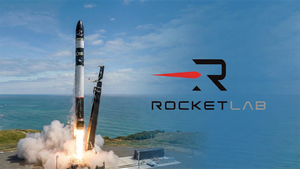Expect to Begin Rolling Submission of New Drug Application (NDA) for Accelerated Approval to FDA for Avutometinib and Defactinib Regimen in Recurrent Low-Grade Serous Ovarian Cancer (LGSOC) in H1 2024; Prepare for Potential Commercial Launch in 2025
Initial Data Read-Out from RAMP 205 Trial of Avutometinib and Defactinib Combination Plus Standard of Care Chemotherapy in Frontline Metastatic Pancreatic Cancer Planned for H1 2024
Data from RAMP 203 and RAMP 204 Trials in KRAS G12C-Mutant Non-Small Cell Lung Cancer (NSCLC) Planned for Mid-2024
Verastem Oncology (Nasdaq:VSTM), a biopharmaceutical company committed to advancing new medicines for patients with cancer, today outlined key 2024 strategic priorities and upcoming catalysts to support advancement of its clinical programs in RAS pathway-driven cancers.
“We have made significant progress in our commitment to advancing new solutions for RAS pathway-driven cancers and look forward to an exciting and catalyst-filled year ahead. With plans to submit an NDA for Accelerated Approval for the combination of avutometinib and defactinib in recurrent low-grade serous ovarian cancer in the first half of this year, we are working rapidly to bring forward the first potential therapy approved by the U.S. Food and Drug Administration for patients with LGSOC in need of better treatment options,” said Dan Paterson, President and Chief Executive Officer of Verastem Oncology. “Further, we plan to provide data read-outs with avutometinib and defactinib combinations in KRAS G12C-mutant non-small cell lung cancer and frontline metastatic pancreatic cancer, as well as supporting our collaborator GenFleet in advancing oral KRAS G12D inhibitor GFH375/VS-7375 into a Phase 1 clinical trial this year.”
2023 and Recent Accomplishments
- Presented interim results from the Phase 1/2 RAMP 201 trial of avutometinib and defactinib in LGSOC, including an objective response rate (ORR) of 45% (13/29) and disease control in 86% (25/29) of evaluable patients. Safety and tolerability continued to be favorable and consistent with previously reported data.
- Finalized design with the FDA and initiated confirmatory Phase 3 RAMP 301 trial to evaluate the efficacy and safety of avutometinib and defactinib versus standard chemotherapy or hormonal therapy for the treatment of recurrent LGSOC.
- Launched patient and healthcare professional initiatives, including Let’s Talk About LGSOC, designed to support clinicians in the diagnosis and management of LGSOC and to provide information, resources and support to patients. Engaged with more than 25% of the recurrent LGSOC patient population.
- Presented initial results from Phase 1/2 RAMP 203 trial evaluating the efficacy and safety of avutometinib and sotorasib in patients with KRAS G12C-mutant non-small cell lung cancer (NSCLC) who have or have not been previously treated with a KRAS G12C inhibitor. The confirmed ORR was 25% (3/12) across efficacy-evaluable patients and responses observed in both KRAS G12C inhibitor resistant (14.3%; 1/7) and naïve (40%; 2/5) patients. Avutometinib 4.0 mg by mouth biweekly (BIW) 21/28 days and sotorasib 960 mg by mouth once-daily (QD) 28/28 days was selected as the recommended Phase 2 dose based on dose limiting toxicity assessment.
- Received Fast Track designation from the FDA for avutometinib, in combination with Amgen’s G12C inhibitor, LUMAKRAS™ (sotorasib), for the treatment of patients with KRAS G12C-mutant metastatic NSCLC who have received at least one prior systemic therapy and have not been previously treated with a KRAS G12C inhibitor.
- Entered into a discovery and development collaboration with GenFleet Therapeutics (“GenFleet”) to advance three oncology discovery programs targeting RAS pathway-driven cancers. Completed investigational new drug (IND)-enabling GLP toxicology studies for oral KRAS G12D inhibitor GFH375/VS-7375, selected as lead program.
Strategic Priorities and Anticipated 2024 Milestones and Catalysts
LGSOC Program
- Begin submission of an NDA to the FDA for Accelerated Approval for the combination of avutometinib and defactinib in recurrent LGSOC in H1 2024; prepare for potential commercial launch in 2025.
- Present full data from Part A and Part B of RAMP 201 trial in LGSOC at a scientific medical conference in H1 2024.
- Initiate discussions with European and Japanese regulatory authorities for the avutometinib and defactinib regimen in LGSOC to address patient needs outside the U.S.
KRAS G12C-Mutant NSCLC Program
- Based on stronger tumor regressions in KRAS G12C-mutant NSCLC preclinical models when FAKi is added along with G12Ci + avutometinib, add defactinib to the RAMP 203 trial of avutometinib with sotorasib.
- Data updates from RAMP 203 and RAMP 204 trials planned for mid-2024.
Frontline Metastatic Pancreatic Cancer Program
- Present initial safety and efficacy results from RAMP 205 trial of avutometinib and defactinib in combination with standard of care gemcitabine and nab-paclitaxel in frontline metastatic pancreatic cancer in H1 2024.
GenFleet Collaboration
- GenFleet expected to submit an IND for GFH375/VS-7375 in China for patient with KRAS G12D mutations in H1 2024 and begin a Phase 1 trial for GFH375/VS-7375 in China in H2 2024.
- Companies to continue discovery/lead optimization for second and third programs.
About the Avutometinib and Defactinib Combination
Avutometinib is a RAF/MEK clamp that induces inactive complexes of MEK with ARAF, BRAF and CRAF potentially creating a more complete and durable anti-tumor response through maximal RAS pathway inhibition. In contrast to currently available MEK inhibitors, avutometinib blocks both MEK kinase activity and the ability of RAF to phosphorylate MEK. This unique mechanism allows avutometinib to block MEK signaling without the compensatory activation of MEK that appears to limit the efficacy of other inhibitors. The U.S. Food and Drug Administration granted Breakthrough Therapy designation for the combination of Verastem Oncology’s investigational RAF/MEK clamp avutometinib, with defactinib, its FAK inhibitor, for the treatment of all patients with recurrent LGSOC regardless of KRAS status after one or more prior lines of therapy, including platinum-based chemotherapy.
Verastem Oncology is currently conducting clinical trials with its RAF/MEK clamp avutometinib in RAS pathway-driven tumors as part of its (Raf And Mek Program). RAMP 301 is a Phase 3 confirmatory trial evaluating the combination of avutometinib and defactinib versus standard chemotherapy or hormonal therapy for the treatment of recurrent LGSOC. RAMP 201 is a Phase 2 registration-directed trial of avutometinib in combination with defactinib in patients with recurrent LGSOC and has completed enrollment in the dose optimization and expansion phases and is enrolling for low-dose evaluation. Verastem Oncology has established clinical collaborations with Amgen and Mirati to evaluate LUMAKRAS™ (sotorasib) and KRAZATI™ (adagrasib) in combination with avutometinib in KRAS G12C mutant NSCLC as part of the RAMP 203 and RAMP 204 trials, respectively. Supported by the “Therapeutic Accelerator Award” Verastem Oncology received from PanCAN, the Company is conducting RAMP 205, a Phase 1b/2 clinical trial evaluating avutometinib and defactinib with gemcitabine/nab-paclitaxel in patients with front-line metastatic pancreatic cancer.
About Verastem Oncology
Verastem Oncology (Nasdaq: VSTM) is a development-stage biopharmaceutical company committed to the development and commercialization of new medicines to improve the lives of patients diagnosed with cancer. Our pipeline is focused on novel small molecule drugs that inhibit critical signaling pathways in cancer that promote cancer cell survival and tumor growth, including RAF/MEK inhibition and focal adhesion kinase (FAK) inhibition. For more information, please visit www.verastem.com.
Forward-Looking Statements Notice
This press release includes forward-looking statements about Verastem Oncology’s strategy, future plans and prospects, including statements related to the expected outcome and benefits of the collaboration with GenFleet, the potential clinical value of various of its clinical trials, the timing of commencing and completing trials, including topline data reports, interactions with regulators, the potential for and timing of commercialization of product candidates and potential for additional development programs involving Verastem Oncology’s lead compound. The words "anticipate," "believe," "estimate," "expect," "intend," "may," "plan," "predict," "project," "target," "potential," "will," "would," "could," "should," "continue," “can,” “promising” and similar expressions are intended to identify forward-looking statements, although not all forward-looking statements contain these identifying words. Each forward-looking statement is subject to risks and uncertainties that could cause actual results to differ materially from those expressed or implied in such statement.
Applicable risks and uncertainties include the risks and uncertainties, among other things, regarding: the success in the development and potential commercialization of our product candidates, including avutometinib in combination with other compounds, including defactinib, LUMAKRAS™ and others; the uncertainties inherent in research and development, such as negative or unexpected results of clinical trials, the occurrence or timing of applications for our product candidates that may be filed with regulatory authorities in any jurisdictions; whether and when regulatory authorities in any jurisdictions may approve any such applications that may be filed for our product candidates, and, if approved, whether our product candidates will be commercially successful in such jurisdictions; our ability to obtain, maintain and enforce patent and other intellectual property protection for our product candidates; the scope, timing, and outcome of any legal proceedings; decisions by regulatory authorities regarding trial design, labeling and other matters that could affect the timing, availability or commercial potential of our product candidates; whether preclinical testing of our product candidates and preliminary or interim data from clinical trials will be predictive of the results or success of ongoing or later clinical trials; that the timing, scope and rate of reimbursement for our product candidates is uncertain; that third-party payors (including government agencies) may not reimburse; that there may be competitive developments affecting our product candidates; that data may not be available when expected; that enrollment of clinical trials may take longer than expected; that our product candidates will cause adverse safety events and/or unexpected concerns may arise from additional data or analysis, or result in unmanageable safety profiles as compared to their levels of efficacy; that our product candidates may experience manufacturing or supply interruptions or failures; that any of our third party contract research organizations, contract manufacturing organizations, clinical sites, or contractors, among others, who we rely on fail to fully perform; that we face substantial competition, which may result in others developing or commercializing products before or more successfully than we do which could result in reduced market share or market potential for our product candidates; that we will be unable to successfully initiate or complete the clinical development and eventual commercialization of our product candidates; that the development and commercialization of our product candidates will take longer or cost more than planned, including as a result of conducting additional studies; that we may not have sufficient cash to fund our contemplated operations; that we may not attract and retain high quality personnel; that we or Chugai Pharmaceutical Co., Ltd. will fail to fully perform under the avutometinib license agreement; that our target market for our product candidates might be smaller than we are presently estimating; that Secura Bio, Inc. will fail to fully perform under the asset purchase agreement with Secura Bio, Inc., including in relation to milestone payments; that we will not see a return on investment on the payments we have and may continue to make pursuant to the collaboration and option agreement with GenFleet or that GenFleet will fail to fully perform under the agreement; that we may be unable to obtain adequate financing in the future through product licensing, co-promotional arrangements, public or private equity, debt financing or otherwise; that we will not pursue or submit regulatory filings for our product candidates; and that our product candidates will not receive regulatory approval, become commercially successful products, or result in new treatment options being offered to patients.
Other risks and uncertainties include those identified under the heading “Risk Factors” in the Company’s Annual Report on Form 10-K for the year ended December 31, 2022 as filed with the Securities and Exchange Commission (SEC) on March 14, 2023 and in any subsequent filings with the SEC. The forward-looking statements contained in this press release reflect Verastem Oncology’s views as of the date hereof, and the Company does not assume and specifically disclaims any obligation to update any forward-looking statements whether as a result of new information, future events or otherwise, except as required by law.
View source version on businesswire.com: https://www.businesswire.com/news/home/20240124822477/en/
Contacts
Investors:
Ryan Porter
Argot Partners
+1 212-600-1902
ryan.porter@argotpartners.com
Media:
Verastem Oncology
media@verastem.com





